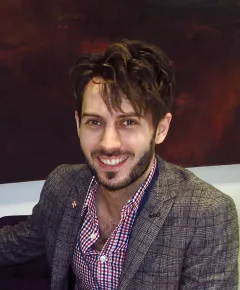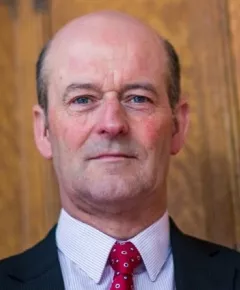Study Theology, Religion, and Philosophy of Religion at Cambridge
Theology, Religion, and Philosophy of Religion
Theology, Religion, and Philosophy and Religion is one of the most flexible degrees at Cambridge. It is a multidisciplinary arts degree in which you can pursue many interests, irrespective of whether you belong to a particular faith community yourself or not.
You will explore a range of philosophical and religious traditions, both ancient and modern, in detail and from a variety of academic perspectives, while gaining a broad range of skills.
In Theology, Religion, and Philosophy and Religion, you will have the chance to dig deeply into fundamental questions around belief, knowledge, truth, goodness, society, culture, meaning, and experience. When selecting what to study, you can opt between a range of approaches: historical, sociological, anthropological, textual, literary, as well as philosophical or theological.
Course Details
MAGDALENE CAMPUS CODE:
M
MINIMUM OFFER LEVEL
A-level: A*AA, IB: 41-42 points
UCAS CODE:
V600
ESSENTIAL SUBJECTS:
None
COURSE DURATION:
Three years – BA (Hons)
USEFUL SUBJECTS:
Humanities, Languages, Philosophy
At Cambridge
Worldwide, six out of seven people describe themselves as religious, with religious beliefs driving social and political change globally. Taking Theology, Religion and Philosophy of Religion (TRPR) at Cambridge allows you to study in detail many different religious and philosophical traditions, explore the connections between them, and understand their relationship with the larger societies and cultures of which they are a part.
You do not have to belong to any particular religious faith to study TRPR at Cambridge, and you certainly do not need to be pursuing a religious career path. TRPR is a broad-based arts degree in which you will learn to use a variety of different academic methodologies, study big questions about the nature of truth and experience, and gain a deep understanding of the range of beliefs and practices that have for centuries given meaning to human life, and shaped societies, cultures, and the course of history.
The flexibility of our degree structure allows you to choose the particular subjects and themes that you want to pursue. There are only two required papers (or modules) in the whole degree programme. In the first year, all undergraduates study a scriptural language (Hebrew, Greek, Sanskrit, Arabic) at introductory level, and at least one biblical paper (Old or New Testament). After that, you will select your own papers, which means you have a lot of choice over which subjects you study. You will be able to select papers on a range of religious traditions, such as Buddhism, Christianity, Hinduism, Islam and Judaism, and explore different theological, philosophical, sociological and historical approaches to the study of religion and belief. Many papers are themselves ‘interdisciplinary’, which means you will be able to combine your interest in religion with areas such as history, sociology, anthropology, philosophy, ethics, literature, politics, and science.
As with many arts degrees, a wide range of career paths are open to TRPR graduates. From an employer’s perspective, you will be especially valued for your intercultural literacy, critical thinking, research skills, and holistic understanding of the nature of human knowledge and experience.
More information on the course can be found on the Faculty of Divinity website.
At Magdalene
Magdalene has a strong heritage in the arts and humanities generally, and in theological and philosophical studies in particular. C. S. Lewis was a Fellow here, and Dr Rowan Williams, the former Archbishop of Canterbury and a scholar and poet, was Master from 2013-2020. Each year we make one to three offers for the undergraduate course in TRPR, and there are usually a number of postgraduate students studying for a master’s degree or PhD.
The Director of Studies for the undergraduate degree is Dr Simon Ravenscroft, who works primarily in philosophy of religion and social and political theory. The Regius Professor of Divinity, David Fergusson, is also a Fellow of the College, and is a leading authority in various areas of Christian doctrine and philosophical theology. Another senior member, Professor Eamon Duffy, is Emeritus Professor of the History of Christianity, and an expert in early modern Church history and the European reformations. Dr Rowan Williams remains an Honorary Fellow. Other fellows with related interests include Professor Amira Bennison, who works on aspects of the History of Islam, and Dr John Munns, who works on medieval art, architecture, and ecclesiastical history.
What we are looking for
Along with enthusiasm for the subject, successful candidates usually exhibit native intelligence, an ability to deal with texts and ideas, to think logically and coherently, and to make appropriate connections between related ideas and concepts. The interview is an opportunity for the candidate to show, through discussion, that they have these qualities.
It is not essential to have studied RE/RS or Philosophy at school, though it can be helpful, as can many other essay-based subjects in the humanities. Far more important are a good critical intelligence and a lively commitment to the subject. Note that language teaching in TRPR assumes no previous knowledge of the language and there is no requirement for applicants to have a language qualification.
Subject requirements
There are no set subject requirements for TRPR. Our minimum offer level is A*AA at A-level or 41-42 points in the IB with 7,7,6 at Higher Level.
Interviews and written work
Applicants are required to submit two written essays in advance, and will normally have either one interview lasting approximately 40-50 minutes, or two interviews each lasting approximately 20-25 minutes. Candidates may be given a short passage to read and think about before the start of one or both interviews.
Contact information
Faculty of Divinity
West Road
Cambridge
CB3 9BS
CALL
01223 763002

